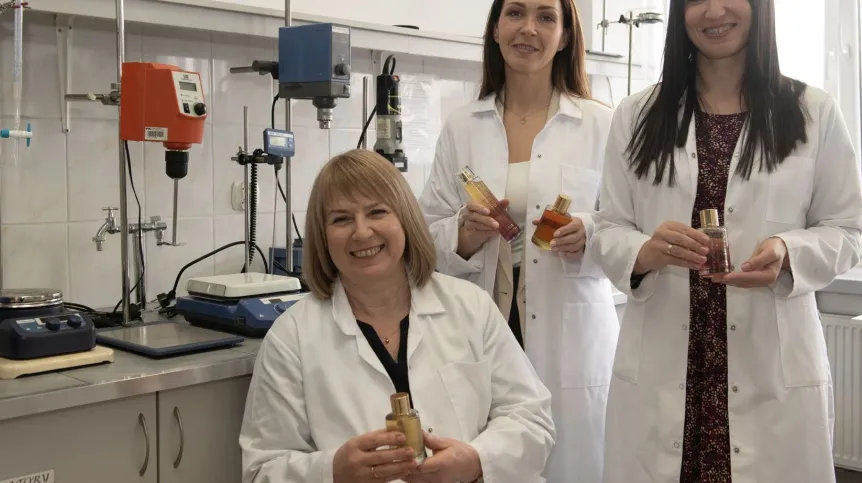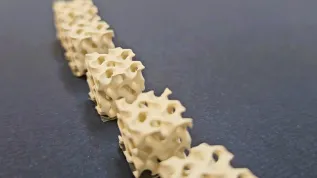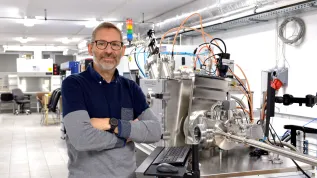
Researchers at the Krakow University of Technology have developed eco-friendly, alcohol-free, water-based perfumes featuring allergen-free fragrance compositions.
The innovation, a nanoemulsion in which oil is dispersed in water, has been awarded a European patent protecting it in 39 European countries.
In traditional perfume formulations, alcohol has been indispensable. As scientists from the university’s Cosmetic Chemistry and Technology research group explain, it is impossible to dissolve essential oils or fragrance mixtures in water due to their hydrophobic nature.
“When we stop mixing the ingredients, they separate. Instead of combining, we observe two separate phases: fatty oil and water. In traditional perfumes, the presence of ethanol prevents this phenomenon,” said Prof. Małgorzata Miastkowska, PhD, quoted in the university’s press release.
Alcohol-free perfumes are typically available as solid emulsions or pomades, or as liquid perfumed oils — solutions of essential oils or synthetic fragrance compositions in vegetable oils.
“Their main drawback is that they leave greasy and slippery stains on perfumed surfaces,” said Prof. Elżbieta Sikora, PhD, leader of the Cosmetic Chemistry and Technology research group at the Krakow University of Technology.
She added that products marketed as “alcohol-free perfumes” are usually concentrated fragrance compositions or essential oils, which can irritate the skin.
“Our nanoperfumes solve these problems. Replacing ethanol with a safe solvent like water makes our formulations a very attractive alternative, for example for people with sensitive skin and a tendency to allergies,” Sikora said.
The perfume can be safely used by children, adolescents, and people prohibited from using alcohol-based perfumes, such as those in Arab countries for religious reasons.
Dr. Elwira Lasoń also worked on the solution, in collaboration with experts from Finea sp. z o.o., as part of an EU-funded project.
How did the researchers manage to replace alcohol with water?
“We solved the key technological problem of obtaining a stable, homogeneous, and transparent product consisting of a mixture of mutually insoluble liquids — water and a hydrophobic fragrance composition — by selecting the appropriate type and amount of surfactant,” Sikora said.
A surfactant is a substance that reduces surface tension, allowing immiscible liquids like oil and water to form stable emulsions. According to Sikora, this prevents the separation of oil and water phases.
She added that refining the technology for producing nanoemulsions — selecting the right parameters for the emulsification process — was also essential.
The method for producing alcohol-free perfumes in the form of oil-in-water nanoemulsions was first patented in Poland in 2020, followed by a European patent application. Both patents are co-owned by the Krakow University of Technology and Finea sp. z o.o.
“For the university, this is proof of the innovative nature of our research and commercialisation efficiency. It confirms that the Krakow University of Technology is the right partner for businesses to implement company development plans through innovation,” said Prof. Andrzej Szarata, Rector of the Krakow University of Technology.
Katarzyna Gut of Finea sp. z o.o., co-author of the solution, said that sales of perfumes marketed under the TIYATI brand since 2019 have been growing rapidly, especially in the Persian Gulf countries, including Saudi Arabia, as well as in the UK, USA, and Malaysia.
The European Patent Office’s decision expands protection to 39 European countries, opening new markets for the product.
“The European patent protects the solution in as many as 39 European countries, and it is awarded in a single procedure. Ultimately, it constitutes a bundle of national patents, meaning that it is equal to national patents in designated countries, parties to the Munich Convention,” explained Łukasz Wściubiak from the Patent Attorneys Team at the Krakow University of Technology, quoted in the press release.
“Such broad territorial protection for inventions makes the most sense when it corresponds to a broad territorial market for patented solutions. An invention, in principle, should be protected in those countries where a market exists for it. For Polish nanoperfumes, Europe is the dream market for new expansion,” Wściubiak added. (PAP)
wl/ bar/ kap/
tr. RL













